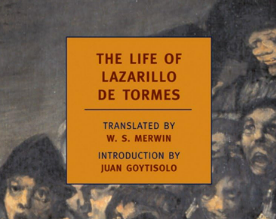Chapter XI: How Lazaro Left for His Homeland and What Happened to Him on the Way
byChapter XI titled “How Lazaro Left for His Homeland and What Happened to Him on the Way” begins with a twist of fate that brings Lazaro face-to-face with a man from his troubled past. In the crowded streets of Madrid, he spots the squire who once deceived him and stole his clothes. Lazaro does not confront him directly. Instead, he cleverly stirs the resentment of a local family who had also been wronged by the same man. Fueled by his provocation, they confront the squire, beat him soundly, and hand him over to the authorities. As the man is taken away, believing the attack was led by Lazaro’s kin, Lazaro slips away, deciding it is time to abandon his life in Madrid and the miseries it held.
His departure is not without reflection. Madrid, though vast and bustling, had offered him little beyond hunger and humiliation. The beatings he endured had left him frail, forcing him to rely on the charity of strangers just to survive. He remembers overhearing beggars whispering about the squire’s fate—a trial, a conviction, and a final sentence of banishment for vagrancy. The news brings Lazaro no joy, only a lingering unease. He fears that others involved in their past deceptions, particularly the infamous trunk incident, might seek vengeance. To protect himself, he alters his appearance and leaves the city with haste, not stopping until the skyline of the Escorial comes into view. The sight of the grand, unfinished monastery brings him a strange comfort, not just for its beauty, but for its isolation and the promise of cleaner air and clearer thought.
Continuing his journey, Lazaro encounters a camp of gypsies. Covered in dust and ragged from travel, he is mistaken for one of their own and is invited to join their meal. At first wary, he accepts and soon begins to tell them stories from his life, drawing laughter from their gathering. His tale of the misadventures in the Madrid inn, particularly the comical moment involving the barrel, entertains them the most. It is then that two gypsies—one a man, the other a woman—reveal they were present in the very story he tells. The man, once a priest, and the woman, formerly a maiden from Madrid, confirm their identities, surprising Lazaro with the unexpected reunion. Their laughter turns to shared recollection, and soon the woman begins to recount the events from her point of view.
She describes how, after the incident at the inn, both she and the priest were captured and imprisoned. However, through clever manipulation and feigned repentance, they managed to escape. They fled under cover of darkness, stealing garments along the way to mask their identities. The priest shaved his head, adopting the look of a gypsy, while the maiden darkened her skin with crushed herbs and ash. The gypsy camp had taken them in without question, drawn to their charm and stories. Now fully integrated into the group, they live without fear of arrest or exposure. Lazaro listens with mixed feelings—part amusement, part envy—at how others, too, have used disguise and quick thinking to slip past punishment.
As night falls, Lazaro finds himself reflecting on how lives like theirs—improvised and precarious—still find a way to continue. He is reminded that identity, like reputation, is often just a costume worn for the day. The priest and maiden now live free, their pasts erased by dust and distance. Lazaro does not judge them. Instead, he sees a reflection of his own journey—one filled with false starts, masked intentions, and an endless search for comfort in a world that rarely offers it willingly. The gypsies are not saints, nor are they villains. They are survivors, much like himself, and their stories—wild as they are—help him feel a little less alone in his path.
This chapter not only adds another colorful episode to Lazaro’s adventures but also deepens the theme of reinvention. Whether through choice or necessity, people reshape themselves to fit the demands of each moment. For Lazaro, the road to Tejares is no longer just a return home. It becomes a passage through the shared absurdities of life, where every traveler carries a secret and every encounter could shift the story. He continues not because he knows what lies ahead, but because the only way to live is to keep walking, even when the map is unclear.

